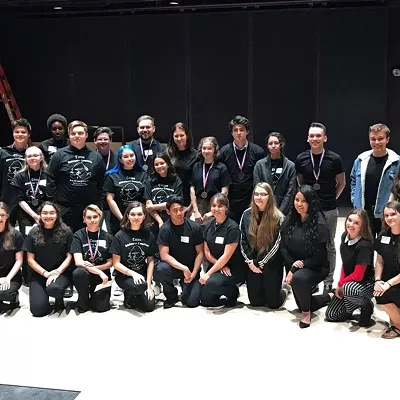Should it stay, or should it go? I'm torn. On one hand, you know what it means and I know what it means and we don't really have a term for that still, barometer-dropping, "It's the heat and the humidity" weather we get during the rainy season.
On the other hand, this new usage takes an exotic, mouth-filling word (from the Arabic mawsim, season, through Portuguese and Dutch) and makes it sound like an item of baby-talk. Monsoony: rhymes with Moonie and Looney (as in Tunes).
And it's new, which is another reason not to like it. When it comes to language, familiarity breeds acceptance. I remember years ago first hearing the phrase, "He got in my face," and not knowing quite what it meant, and then, once I was told, thinking that it sounded wrong.
(The context was TV basketball-speak, which one tends to hear a lot of in my house.) How does someone get in another person's face? A face is a flat, solid surface with no in- or out-ness to it. But after a year or two of hearing the expression everywhere, it sounded fine, and then I started using it, and now it's a-OK.
By the time I'm eligible for Social Security--assuming it still exists, of course--"monsoony" may be in the dictionary.
I give into tasty new language fast. Ed and I just spent an exhilarating week pigging out on DVDs of the first two seasons of the great HBO cop show, The Wire. Among its many other virtues, The Wire is a treasure trove of Baltimore drug-speak so authentic that much of it's unintelligible. (Last season, the special detail actually got a translator, a lady from the 'hood who sat by the speaker interpreting the dense dialect streaming in from the wiretaps.) I emerged from this TV-fest thinking, "That's how they do," every time I looked at the newspaper. The administration wants more snowmobiles in the national parks? That's how they do. Bolton's trying to gut every plan the United Nations has for the developing world? Mmm, mmm, mmm. That be just how they do.
Most of my adventures in Emerging English are on the radically democratic tower of Babel that is the Internet. I like to keep my spam filter set so that I can see the mail the program identifies as junk, partly out of curiosity about current scams--I'm a huge fan of Nigerian letter hoaxes--but also for the random poetry of the synthetic senders' names. Altimeter G. Pet is offering free shipping on Cialis and Soma; Lymphoma D. Wristwatches begs me to get rich in real estate. Triage H. Vocalization and Scud I. Partake desperately want to sell me Vioxx, which I'm marginally more likely to buy from them than from Distemper E. Regurgitating.
I also like the shortcuts people use on line. Abbreviations like LOL for "laughing out loud" and LMAO for "laughing my ass off" are strangely adhesive: I find I can barely stand to type "by the way" anymore, because BTW says the same thing faster. And courtliness, or subtle sarcasm, is so much easier when you have access to IMHO for "in my humble opinion" and IMVHO for "in my very humble opinion." On one board I frequent, MDH is similarly ambiguous shorthand for "my dear husband." There's something hilarious about reducing one's beloved to a standard three-letter abbreviation.
The more telegraphic an online dialect becomes, the more it unites insiders and excludes the clueless--a basic aim of all human communication. Still, language can be stripped down to the point that it fails. Conventions like capitalization and punctuation are often ignored online to the point that the reason for them becomes brilliantly clear. I recently ran across this sad communication on a gardening board from a member with plant problems: anyway I just ordered some gh nutes from discounthydro and i got this new little catalouge flipping through, and see cal-mag plus, says to treat iron,mag.calcium defficencys. It says "it ends blossom" which would be bad for me but it actually says "it ends blossom end rot in tomatoes and peppers and tip burn in lettuce". No commas in their writing neither so don't understand fully.
Neither do I. That's half the fun.






